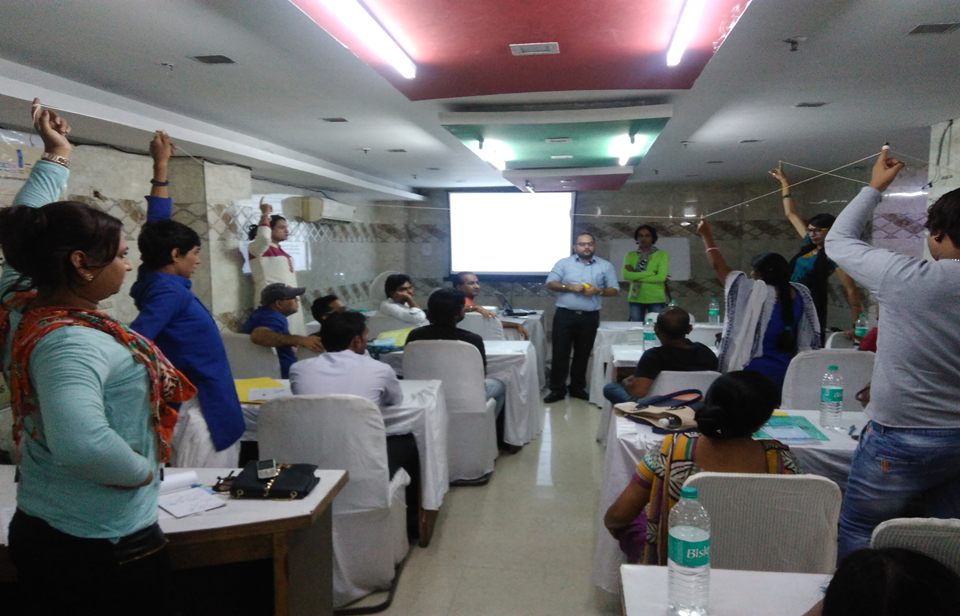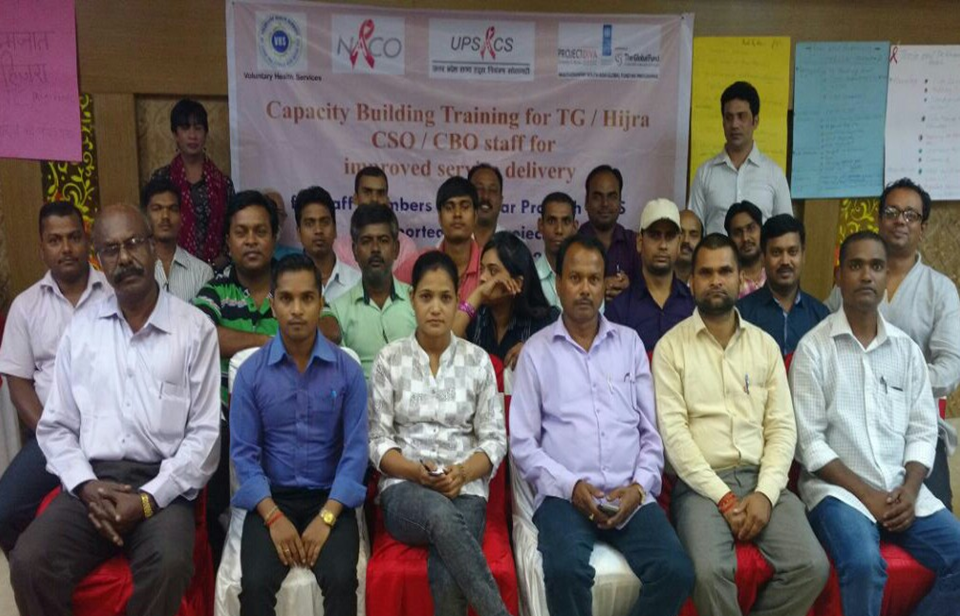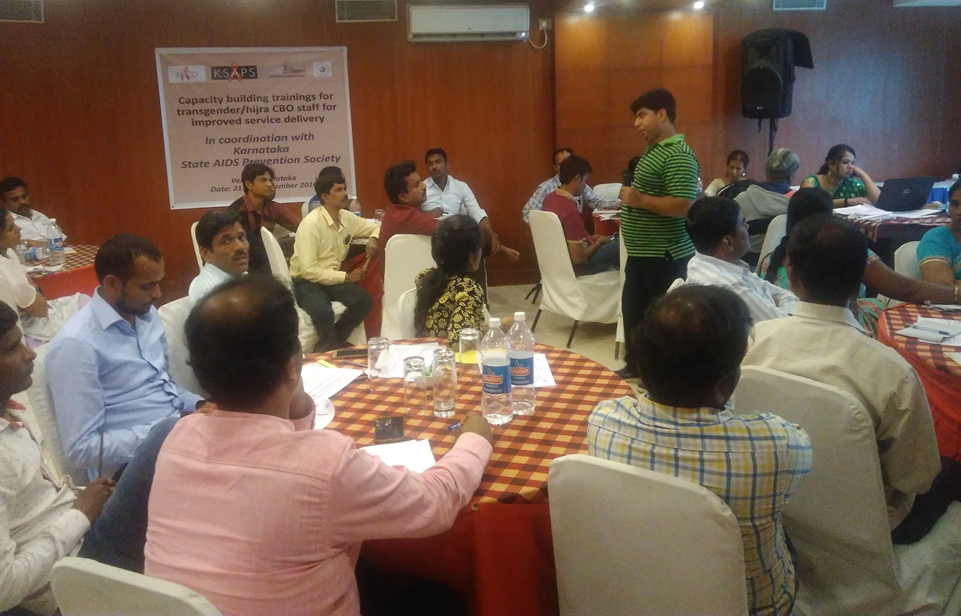- “Proud to Protect Transgender/ Hijra Rights”
DIVA Project
Capacity Building
One of the components of VHS-DIVA Project is Capacity building trainings of CBO staff for improved service delivery for MSM and TG/Hijra populations and organizational development (which includes outreach workers, peer educators and other staff).
Training content identified based on capacity need of specific CBOs in consultation with respective SACS/NACO. The training cover different aspects like
| Community dynamics | Advocacy |
| HIV/AIDS | Stigma & discrimination |
| Sexual health | Community mobilisation |
| Behaviour Change Communication | Governance |
| Outreach | Sustainability |
| ICT/STI services | Financial management |
| Treatment care and support services | M & E |
| Leadership development | Roles & responsibilities |
| Treatment cascade | IT application for effective outreach, etc. |
VHS-DIVA Project under the guidance of NACO, has also prepared a Facilitators Guide on NACO Operational Guidelines for HTG people.
The project had developed a resource pool with 84 Master trainers at the national level to improve the HIV service delivery among TG people in the country and has trained around 1600 TI staff which includes SACS/TSU officials, Program Managers, Outreach workers, Counselors, M&E cum Accountants, CBO members.
Building Community Leadership
The National AIDS Control Programme (NACP) has articulated that the communities are the natural owners to the response to HIV epidemic. The NACP has envisioned to generate community ownership for the project activities through mobilisation of the community members for increased stake in planning and implementation of the project activities. Therefore, it is very critical to strengthen the ability of community themselves to identify needs and to develop and implement activities focused on HIV/AIDS prevention.
VHS-MSA DIVA Project under the guidance of NACO and in partnership with SACS, in its project period has developed 116 master trainers for the country out of which 38 are community members. These master trainers in turn have trained over 1600 TI staff on various components of TG-TI programme.
The training programmes broadly covered aspects like
(i) Components of TI and Programme Management,
(ii) Roles and Responsibilities of TI staff,
(iii) Sex, Sexuality and Gender,
(iv) Outreach and Peer Education for TG/Hijra TIs,
(v) Counseling and linkages including GTRS and Mental Health Services,
(vi) Condom Promotion
(vii) STI Service Delivery,
(viii) Positive Prevention,
(ix) Advocacy and Crisis Response,
(x) Community Mobilization.



